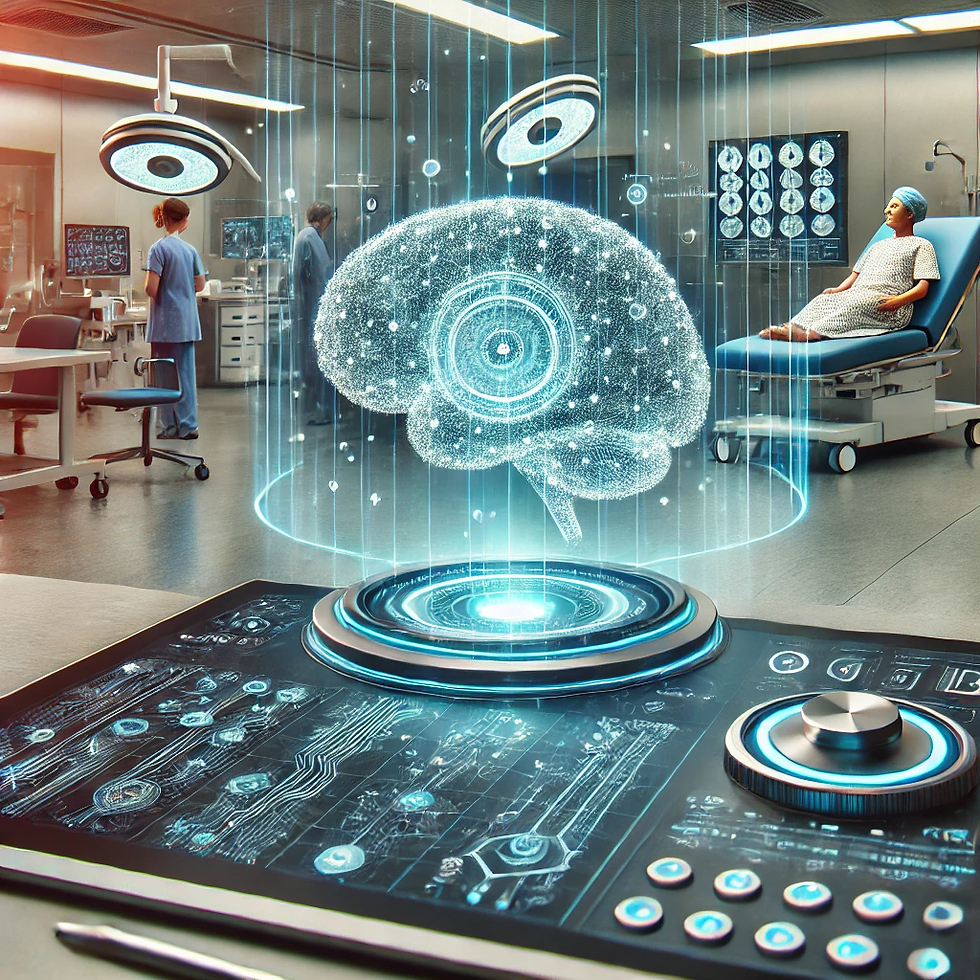AI Revolutionizes Alzheimer's Diagnosis and Prognosis with Unprecedented Accuracy
- Covertly AI
- Jan 27, 2025
- 2 min read
Cambridge scientists have developed an artificial intelligence (AI) tool that significantly enhances the accuracy of predicting whether individuals with early signs of dementia will develop Alzheimer's disease. This groundbreaking advancement, achieved through a machine learning model, has demonstrated up to 82% accuracy in distinguishing between patients likely to progress to Alzheimer's and those who remain stable.
Alzheimer's disease, the most common cause of dementia, affects over 55 million people globally and accounts for 60-80% of dementia cases. Early diagnosis is critical to slowing disease progression and ensuring timely interventions, yet current diagnostic methods are often invasive, expensive, and inaccessible. Researchers from the University of Cambridge have developed a tool to address these challenges, offering a more sensitive and cost-effective alternative.
The AI tool was built using data from over 400 participants in a U.S.-based research cohort, including cognitive tests and MRI scans showing gray matter atrophy. The model was validated on 1,500 participants from UK, U.S., and Singapore memory clinics. It not only predicted progression to Alzheimer's within three years with remarkable accuracy but also outperformed existing clinical diagnostic methods by threefold. Moreover, it stratified patients into categories based on their risk of progression, enabling tailored clinical pathways and interventions.

This innovation promises to reduce reliance on invasive procedures like PET scans or lumbar punctures, often unavailable in many memory clinics. By identifying individuals likely to progress rapidly, the tool can guide early interventions, including lifestyle changes or emerging treatments. Additionally, it provides reassurance to those whose symptoms are not indicative of Alzheimer's but may stem from conditions such as anxiety or depression.
Dr. Zoe Kourtzi, senior author of the study, emphasized the AI model's real-world applicability. It was trained and tested on routinely collected clinical data, ensuring its generalizability to healthcare settings. This could potentially transform how memory clinics assess and manage patients with cognitive impairments.
The tool also exemplifies the power of AI in healthcare by leveraging existing data to enhance predictive accuracy. Dr. David Merrill, a geriatric psychiatrist, highlighted its potential to identify patients for clinical trials and monitor the effectiveness of interventions to delay disease progression. This capability could be pivotal as new treatments emerge, ensuring that resources are directed to patients most likely to benefit.

The Cambridge team now aims to expand their AI model to other forms of dementia, such as vascular and frontotemporal dementia, and incorporate additional data types, including biomarkers from blood tests. This initiative reflects their broader vision of scaling AI tools to assign patients to appropriate diagnostic and treatment pathways at the earliest stages of cognitive decline.
This landmark achievement underscores AI's transformative potential in addressing complex healthcare challenges. By reducing diagnostic uncertainty, accelerating clinical trials, and improving patient outcomes, this innovation sets a new standard in the fight against Alzheimer's disease and related dementias.
.png)







Comments